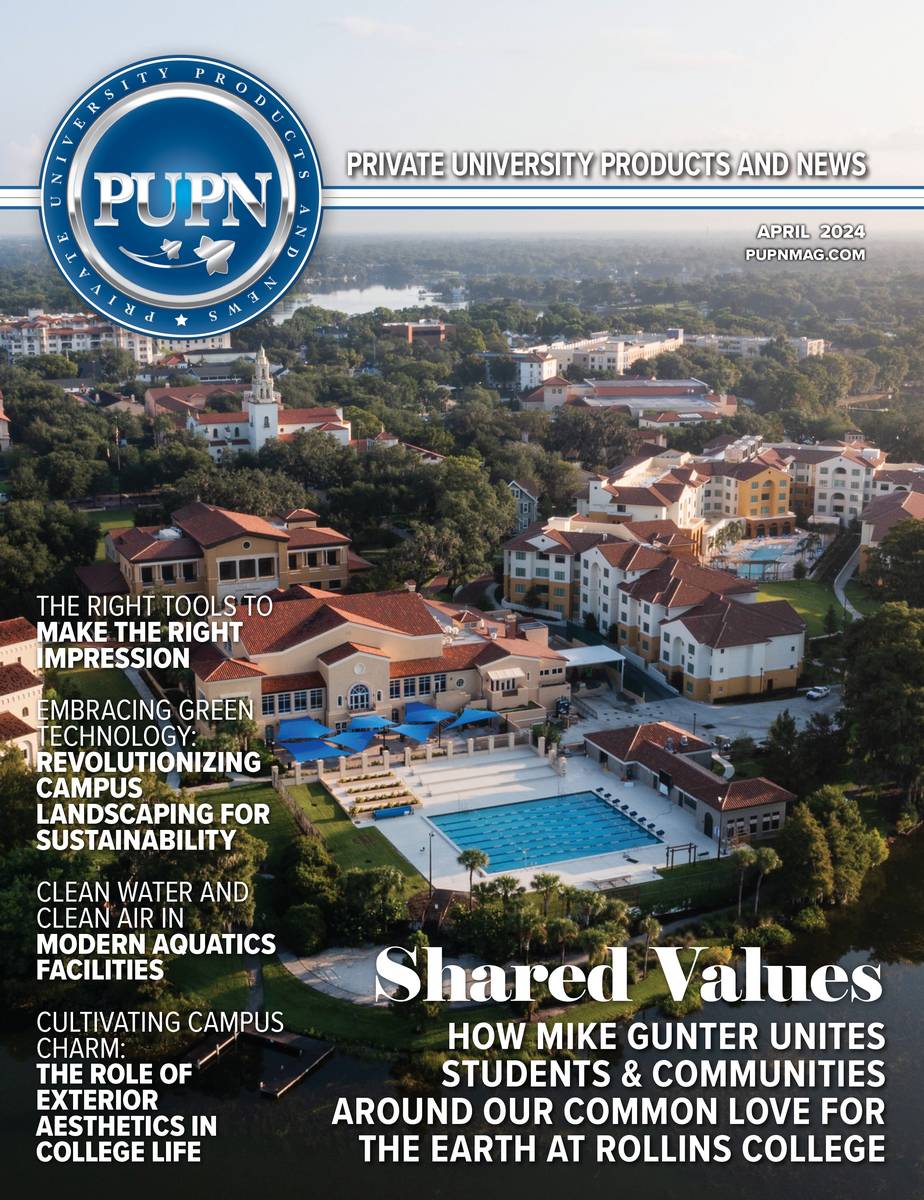Having served as a United Nations representative for human rights, Felice is focused on human rights within global society, issues he tackles in several books, including his most recent, a project which explores four case studies where he believes a “human-rights threshold” has been crossed: The Ethics of Interdependence: Global Human Rights and Duties.
A Narrative of Imagination
Felice considers being a professor a “remarkable career” that offers fulfillment in numerous ways, not the least of which is the ability to help students learn to empathize by offering a “narrative of imagination.” Using these techniques, he helps students attack seemingly overwhelming and insurmountable issues of poverty, war, economic injustice, and challenges to sustainability. “We are conditioned with so many barriers,” he explains, so in order for one to empathize with another, that person must “reconstruct the world how another person sees it.”
From this reconstruction, a basis for understanding emerges, which makes room for the beginning of compassion-wherestudents can connect with others’ pains and their joys-combining facts of a situation with a personal connection that helps to make those data points real, the flesh-and-blood-and-bone behind the numbers.
One challenge is for his students to recognize they are simultaneously American patriots and citizens of the world. He stresses that his goal is never to “make students liberal or conservative or radical”; his intent is to give each of them the tools to explain, codify, and justify their beliefs based on a solid foundation of critical thinking skills and well-developed argumentative skills. For instance, he strongly believes that every voice has a right to be heard, though every argument does not necessarily have an “intellectual coherence.”
His job, in part, is to help students recognize when a system of belief crosses a line that then becomes “a violation of basic human rights.” At the beginning of each class, he explains the distinction between “Procedural Liberalism” and “Substantive Liberalism,” which is a basic commitment to human rights. Invested in creating a “safe space” for all voices and political ideologies, he welcomes and encourages divergent opinions, and students feel open to express their views, even if they are notably in the minority on any subject.
He does admit he isn’t perfectly even-handed at times for all opinions-such as a virulently anti-Semitic argument-quipping that he’s “not a Jedi.” He recognizes that his own inherent biases will come out, and that it would be dishonest to pretend otherwise. Instead, he sets up rules of conduct that require respecting all points of view, and he reinforces those guidelines in every class, intervening if an argument becomes too heated.
Certainly, the tension has increased post-election. He notes, “Part of the conflict comes from both sides thinking they have all the answers.” To combat that dogmaticism, Felice constantly reiterates for students that big issues are complicated, and we must be open to a variety of approaches to combating any complex problems. He helps students recognize their own dogmatic approaches to issues so they can move to the dialogue portion of analysis, the only way to start moving forward on any issue.
Eckerd colleague Professor Tony Brunello adds that Felice is gifted when it comes to eliciting commentary from those in the minority on an issue, as well as wrapping those viewpoints into the overarching class dialogue. In short, Felice demonstrates to students that while all opinions have the potential to be valid arguments, they also must hold up to scrutiny. In other words, even as some media sources are modeling the concept that there is no way to be wrong when it comes to opinion, Felice works against that misconception to train students in ways to support their viewpoints with academic integrity and intellectual rigor.
Along those same lines, Felice is a staunch believer in “interactive learning,” so while each class may begin with a brief lecture to introduce students to new material, the real learning happens in the Socratic pedagogy that follows, the open question-and-answer sessions where students are fully engaged in the process, and therefore more likely to remember important course material.
All Viewpoints Are Heard
Eckerd graduate Claire Russell explains that Felice is not teaching right from wrong in his classroom; instead he is focused on giving the students the tools and the room they need to decide for themselves. Even his exams reflect a dedication to critical thinking, she explains, as the prompts force students to utilize the tools acquired throughout the course to supply answers. Russell adds that Felice reiterates constantly that he wants his students to grapple with the information presented-to challenge it and question it. She adds, “In Professor Felice’s courses, every opinion is seen on an equal plane and is deserving of scrutiny and critical thinking, which is what makes the lessons so captivating and the conversations productive.”
Felice manages to maintain a classroom community where all viewpoints are heard, even when students may recognize they are in the minority on any given topic. Russell explains that while Felice is a brilliant academic, he also has a powerful sense of what needs to be done to make lessons accessible to a diverse set of students, many of whom have little to no background in human rights or international relations. Through a variety of materials and approaches- including lectures, films, activities, reading, and guest-speakers-he finds a way to put all students on the same playing field, keeping discussions inclusive and open.
In using The Ethics of Interdependence text, Russell explains that Felice turns “what could become an unproductive partisan conversation on politics into debates about how best to solve the problems across party lines.” She also praises Felice’s dedication to creating a productive and open classroom, where all students feel encouraged to share. She adds that these qualities have earned Felice “a level of admiration on campus that has students from all disciplines flooding into his courses.”
Fellow student Ali Avery agrees, saying she has never encountered another class like his. Even as he notes openly that his views are liberal leaning, she stresses that the course itself is not a “liberal dominated” or “libe
ral only” atmosphere. Because students are required to participate in class discussions, as part of their course grade, Avery believes this move forces students to be more animated because they know, regardless of their opinions, their views are “heard, valued, and even shared” by others in the classroom.
Saving Your Honor
Professor Brunello calls Felice “the embodiment of the work he has been doing his entire career,” much of which started from a student’s question when Felice outlined the number of human rights violations occurring at a global level. Brunello recalls that student asking Felice how to even begin solving these issues-especially as just one person tackling such far-reaching problems. That student’s question started Felice on the path to answering, “Where do you start?” He began looking for ways that very little money could make massive changes, finding specific and practical things students-or anyone- could do to begin chipping away at massive undertakings.
Brunello shares that another question prompted one of Felice’s subsequent projects. Many years back, students asked Felice, along with a few other professors, to openly share his views on the choice to invade Iraq. While he in no way was “oozing ideology,” Brunello recalls, Felice did approach the question from a human rights angle, in addressing a forum of nearly 500 students. He gave an impassioned talk about his view of the way the world works, including what he believed were ways the invasion undermined the universal declaration of human rights. That very afternoon, Felice received a death threat.
Faced with how far he was willing to go to speak his mind, Felice asked himself the basic question, “How do I save my honor?” His search for that answer-not only for himself but also for the dozens of people he interviewed-filled his next book. Brunello explains that for Felice honor was not a “gushy concept,” but something that could be “measured and recognized.” Brunello also believes his colleague recognized the “existential threat” that would arise from failing to recognize and preserve one’s own honor.
For his students, Felice’s work on ethical interdependence and global duties with regards to human rights leaves a powerful mark. For Avery, the most compelling aspect of Felice’s influence came in the outlining of citizens’ and states’ responsibilities in human rights abuses. As Avery works now as a Global Affairs professional, she is constantly reminded of the issues Felice raises in The Ethics of Interdependence, particularly in the idea that many American citizens fail to recognize their responsibility to respond to global human rights tragedies.
Russell asserts that anyone who has met Felice recognizes he could have done anything for his career-based on his intellectual capacity and passion for human rights. He chose to become an educator, she believes, because “he knows the massive positive impact he can have on the world by equipping young people with the knowledge and passion they need to create real positive change in the field of human rights.” His classes, she explains, offer students across the disciplines revelations about human rights abuses that most of the public may be blind to.
Ultimately, each of Felice’s courses, Russell explains, creates another twenty-five people from all fields with “the tools, knowledge and drive to go out into the world and become real catalysts for change in the field of human rights, fueled by his infectious passion for the subject and belief that the world can change for the better.”










